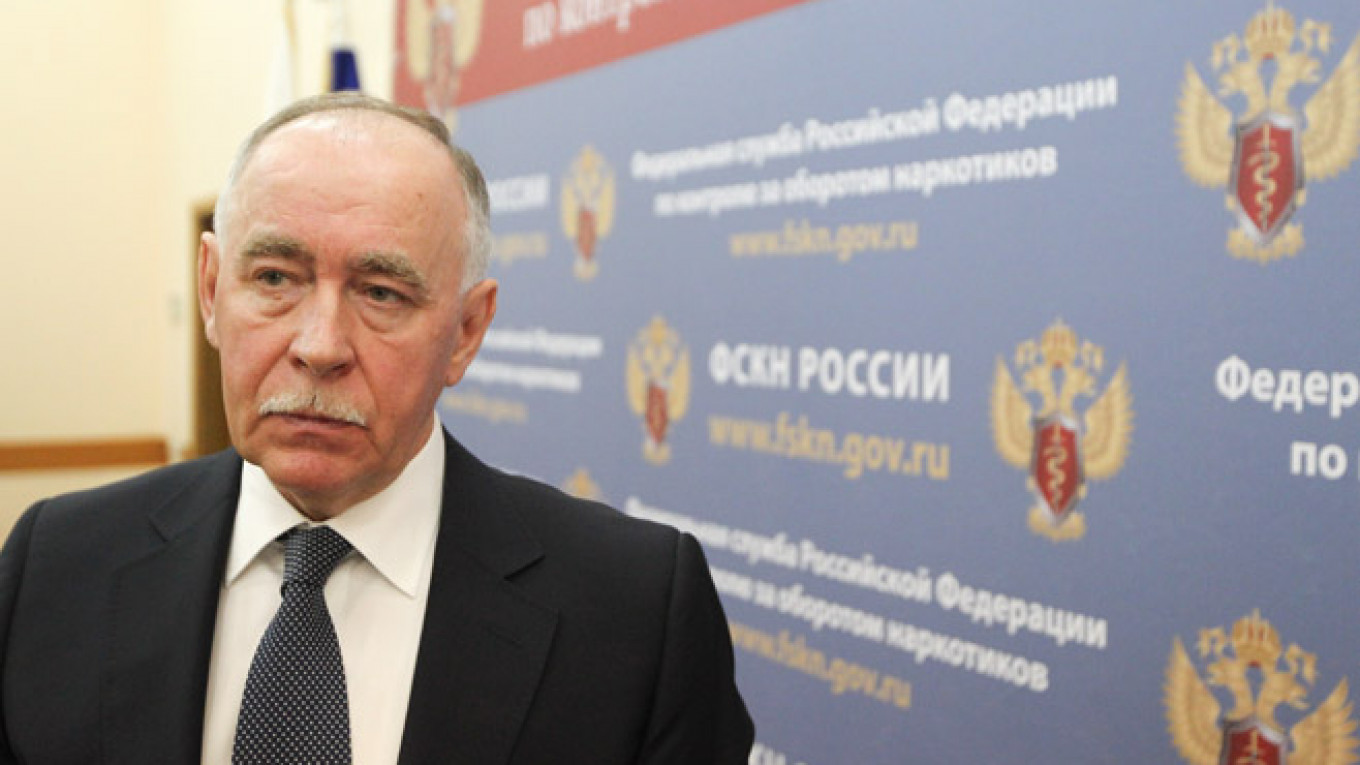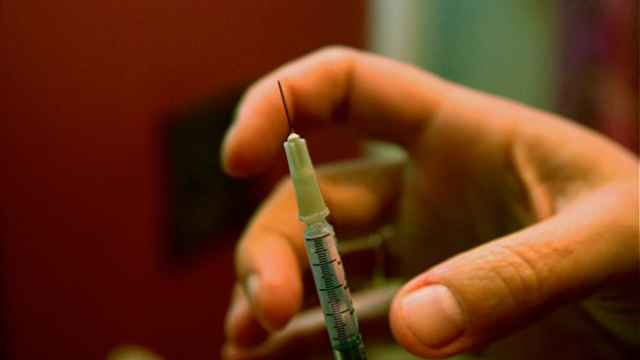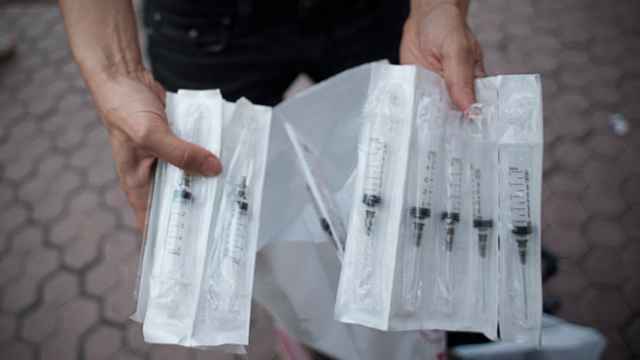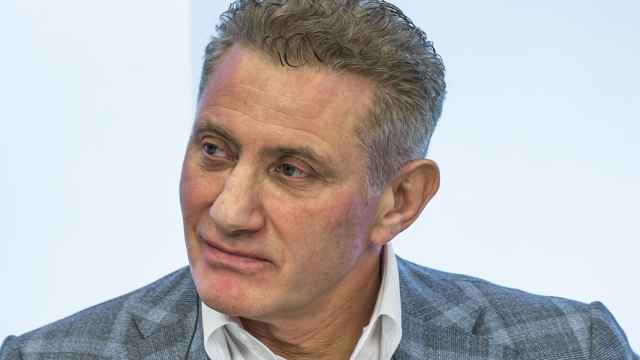Russian researchers in Novosibirsk announced on Tuesday that they are ready to proceed with the second phase of clinical trials for an HIV/AIDS vaccine, but need 200-300 million rubles ($4.9-7.3 million) to fund the trials, RIA Novosti reported, citing a top scientist involved in the project.
A U.S. attempt to cure a baby born with HIV was originally reported to be successful when announced in March, but several months later tests showed that the virus had returned.
Responding to the initial reports that the U.S. had found a cure, Russia's Health Ministry HIV specialist Alexei Mazus said that Russian-made HIV cures were under way in three research centers across the country, and that authorities hoped that at least one of them would show results.
One of those centers, the Vector state virology and biotechnology center in Novosibirsk, announced Tuesday that its vaccine, known as KombiVIChvak, has made significant progress and is ready for phase-two clinical trials.
"KombiVIChvak is Russia's only vaccine against AIDS to reach the second phase of clinical trials," said the center's general director, Valery Mikheyev. Unfortunately, the center has yet to secure the funding necessary to conduct the next set of trials, he added.
According to Mikheyev, the second round of trials, which focuses on testing the vaccine on a higher number of humans, can be completed in less than two years with the proper funding.
Vektor announced it was beginning trials of its vaccine in 2010 and described it as one of the most advanced potential HIV/AIDS vaccines in the world.
Russia has one of the highest HIV infection rates in the industrialized world, driven in part by high rates of drug use. Health officials, however, have favored public information campaigns over internationally common programs like needle exchanges or methadone treatment in the fight against drug addiction.
While HIV globally is declining, Russia's infections are rising. Ten years ago, 170,000 Russians had the virus. Today, the estimated number is 1.2 million. New Russian infections account for some 55 percent of all new cases in Europe, the International Business Times reported in mid-September.
A Message from The Moscow Times:
Dear readers,
We are facing unprecedented challenges. Russia's Prosecutor General's Office has designated The Moscow Times as an "undesirable" organization, criminalizing our work and putting our staff at risk of prosecution. This follows our earlier unjust labeling as a "foreign agent."
These actions are direct attempts to silence independent journalism in Russia. The authorities claim our work "discredits the decisions of the Russian leadership." We see things differently: we strive to provide accurate, unbiased reporting on Russia.
We, the journalists of The Moscow Times, refuse to be silenced. But to continue our work, we need your help.
Your support, no matter how small, makes a world of difference. If you can, please support us monthly starting from just $2. It's quick to set up, and every contribution makes a significant impact.
By supporting The Moscow Times, you're defending open, independent journalism in the face of repression. Thank you for standing with us.
Remind me later.






